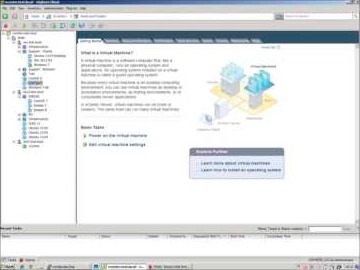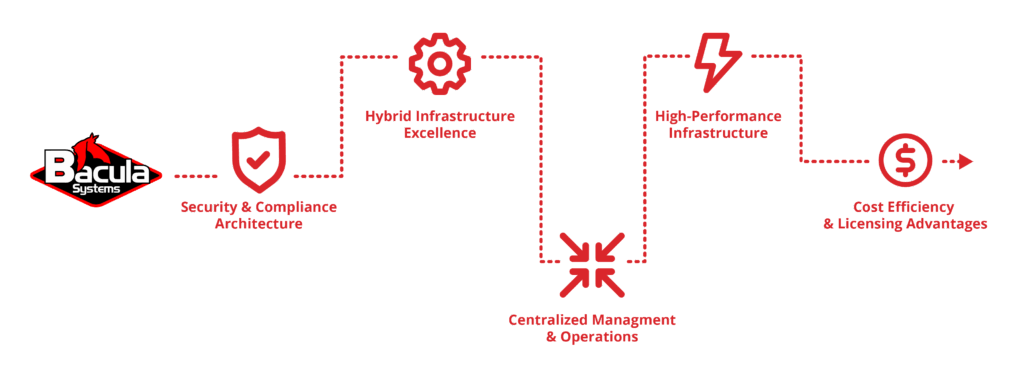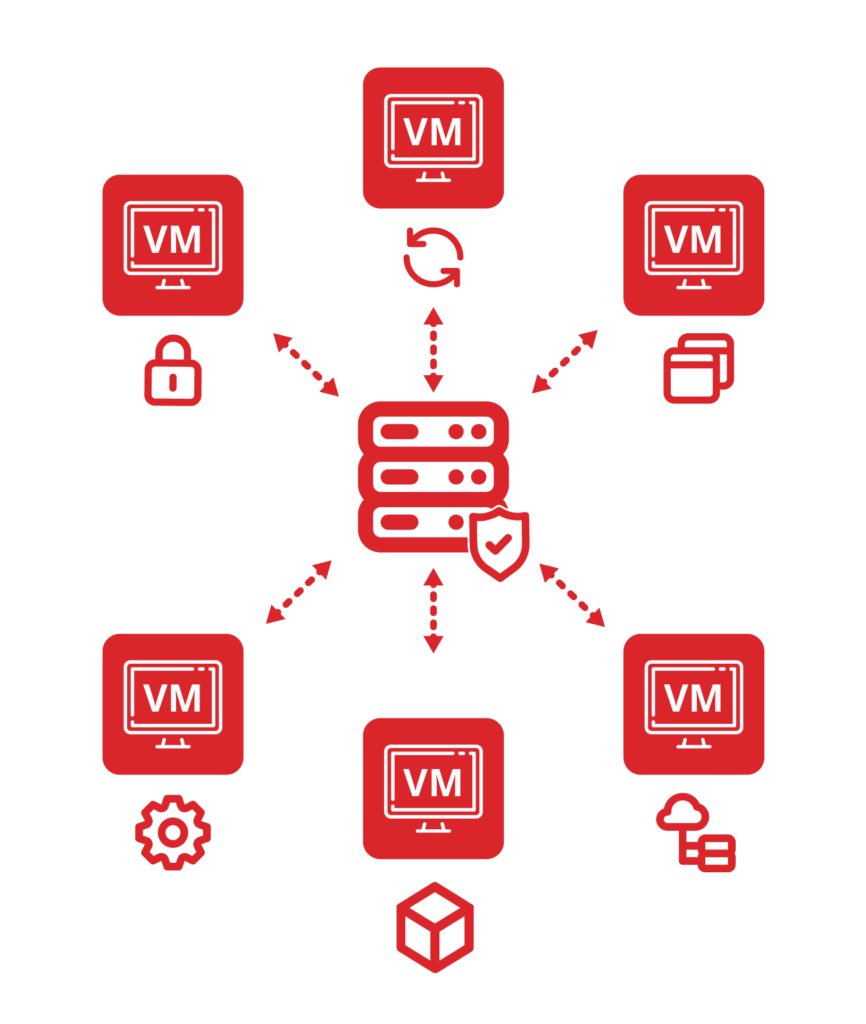Frequently Asked Questions
What’s the difference between VMware snapshots and backups?
VMware snapshots are temporary point-in-time captures of a virtual machine’s state, designed for short-term use during maintenance or testing – they’re not true backups and can degrade performance if retained long-term. Enterprise backup solutions like Bacula create independent, immutable copies of your VMs stored on separate infrastructure, protecting against ransomware, hardware failures, and accidental deletion while providing the retention policies and disaster recovery capabilities required for production environments.
What features should I look for in VMware backup software?
Essential features include Changed Block Tracking (CBT) integration for efficient incremental backups, application-consistent snapshots (VSS) to protect databases and email servers, and granular Single File Restore capabilities to recover individual files without restoring entire VMs. Security features like encryption, immutable backups, ransomware protection, and compliance with regulations like GDPR and HIPAA are increasingly critical, along with flexible transport options (both NBD and SAN) and comprehensive recovery capabilities including bare metal recovery and cross-tenant restore.
How much does VMware backup software typically cost?
Most enterprise backup vendors charge based on data volume (capacity-based licensing), meaning costs escalate dramatically as your VMware environment grows – this can result in unpredictable budgets and significant expenses for large deployments. Bacula Enterprise uses a flat, non-capacity-based licensing model where you’re never charged for the amount of data you protect, delivering enormous savings for organizations with large or rapidly growing VMware infrastructures.
How do I test my VMware backup and restore process?
Regular testing should include restoring complete VMs to verify bare metal recovery, performing Single File Restores to validate granular recovery capabilities, and testing restores to alternate ESXi hosts or datastores to confirm disaster recovery procedures. Schedule quarterly or semi-annual full disaster recovery drills where you restore critical VMs to isolated test environments, verify application functionality, and measure actual Recovery Time Objectives (RTO) against your targets.
What are the pros and cons of agent-based vs agentless VMware backup?
Agentless backups using VMware’s VADP API are easier to manage (no agent installation/maintenance) and consume fewer resources on ESXi hosts, but they back up everything on the VM including temporary files and swap space. Agent-based backups offer granular control with file-level exclusions and application-specific quiescing, but require agent installation and maintenance on each VM – Bacula Enterprise supports both approaches for maximum flexibility.
How does VMware VADP (vStorage API for Data Protection) work?
VADP is VMware’s enterprise API framework that enables backup applications to create consistent snapshots of running VMs and efficiently read VM disk data without requiring agents inside guest operating systems. The backup software communicates with vCenter or ESXi to trigger snapshots, then reads VM disk blocks using either Network Block Device (NBD) transport over TCP/IP, HotAdd transport via directly mounted snapshot images, or direct SAN access for LAN-free backups, integrating with Changed Block Tracking (CBT) to enable fast incremental backups.
What is VMware CBT and why is it important?
Changed Block Tracking is VMware’s technology that monitors which disk blocks have been modified since the last backup, allowing backup software to copy only changed data rather than rescanning entire virtual disks – this dramatically reduces backup windows, network utilization, and storage requirements. CBT must be explicitly enabled on virtual machines (Bacula Enterprise can do this automatically) and requires VM hardware version 7 or later; without CBT, backup software must read entire VM disks to identify changes, resulting in significantly longer backup times.










